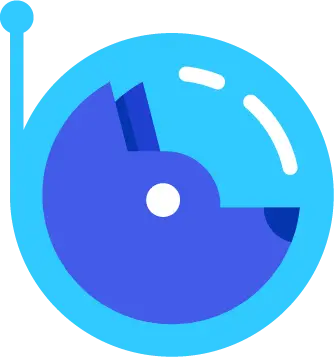Install Asset
Install via Godot
To maintain one source of truth, Godot Asset Library is just a mirror of the old asset library so you can download directly on Godot via the integrated asset library browser

Quick Information

Client for communicating with Nakama, an Open Source game backend, using Nakama's complete REST and realtime APIs.While this client still works, there is now an official Nakama client for Godot written in GDScript, which is what I'd recommend using in new projects:https://godotengine.org/asset-library/asset/606
Nakama client library for Godot (in GDScript)
This is a small addon to the Godot game engine, written in GDScript, that allows interacting with Nakama, an Open Source game backend, using both Nakama's REST and realtime APIs.
Nakama provides its own C# library, that may work with Godot's C# build, but this library will work for folks using the "classic" Godot build (which doesn't have C# support) and it works on all the platforms that Godot supports, including those that don't currently support C# (like HTML5 and iOS).
This library is also a little more Godot-ish, so it might be easier to use for Godot folks.
Installation
Via the Asset Library
- Open your project in Godot
- Click "AssetLib" in the top middle of the window
- Search for "Nakama Client in GDScript"
- Click the item
- Click the "Download" button
- Click the "Install" button
- Select the "addons" directory (and only the "addons" directory)
- Click the "Install" button
- Go to "Project" -> "Project settings" -> "Plugins" and enable this plugin
Manually
- Download the latest code
- Copy the files files in 'addons/nakama-client' to your projects 'addons/' directory
- Go to "Project" -> "Project settings" -> "Plugins" and enable this plugin
Using the client
First, you need to add a NakamaRestClient node to your scene:
- Click the plus button in the "Scene" tab
- Find and add a "NakamaRestClient" node
- Using the inspector, configure the node for your Nakama server
Then, in a script, you'll need to authenticate a user somehow. For example:
var promise = $NakamaRestClient.authenticate_email("[email protected]", "pasword", true, "username")
promise.error == OK and yield(promise, "completed")
print(promise.response)
Now, you'll be able to make any other Nakama API calls! If you want to use the realtime API, you'll need to first create a realtime client:
var realtime_client = $NakamaRestClient.create_realtime_client()
yield(realtime_client, "connected")
promise = realtime_client.send({ "status_update": { "status": "I'm here!" }})
promise.error == OK and yield(promise, "completed")
print (promise.response)
For the realtime client to actually work, you'll need to periodically call
realtime_client.poll(), for example, in your _process() method:
func _process(delta: float) -> void:
if realtime_client:
realtime_client.poll()
Signals, Promises and Co-routines
All the API methods on NakamaRestClient have corresponding signals for
when the call has completed, for example, authenticate_email() will emit
the 'authenticate_email_completed' signal.
If you have a very simple use of Nakama, where only one thing will ever call
authenticate_email() then connecting to this signal is a pretty Godot-ish
way to work with the client.
For example:
$NakamaRestClient.connect('authenticate_email_complete', self, '_on_authenticated')
$NakamaRestClient.authenticate_email(...)
However, all the API calls, also return a promise object, which has it's own 'completed' signal. You can connect to this signal to get the response for just this specific API call.
var promise = $NakamaRestClient.authenticated_email(...)
if promise.error == OK:
promise.connect('completed', self, '_on_authenticed')
else:
print("Unable to even make request")
It's a good idea to check promise.error to see if it has a value other
than OK, which indicates that the request couldn't even be started.
However, even if you forget to do this, the 'completed' signal will still
be emitted, but it won't happen until at least the next frame which
wastes a little time. By checking promise.error you can avoid messing
with the signal at all.
Since Godot supports coroutines via yield() you can also write code that
feels synchronous (even though it's actually asynchronous) like this:
var promise = $NakamaRestClient.authenticate_email("[email protected]", "pasword", true, "username")
promise.error == OK and yield(promise, "completed")
print(promise.response)
It's a good idea to use promise.error == OK and ... bit, because that
will avoid yield()ing at all, in the case that the request couldn't even
be sent. However, again, not using it won't break your code or anything,
because the signal will always be emitted.
Future
Someday, I'd like to make a C++ version of this plugin as a Godot module. This would allow using gRPC instead of REST, which would be a little faster. It would also allow using the Nakama Multiplayer API as a backend for Godot's High-level Multiplayer API.
Client for communicating with Nakama, an Open Source game backend, using Nakama's complete REST and realtime APIs.
While this client still works, there is now an official Nakama client for Godot written in GDScript, which is what I'd recommend using in new projects:
https://godotengine.org/asset-library/asset/606
Reviews
Quick Information

Client for communicating with Nakama, an Open Source game backend, using Nakama's complete REST and realtime APIs.While this client still works, there is now an official Nakama client for Godot written in GDScript, which is what I'd recommend using in new projects:https://godotengine.org/asset-library/asset/606

